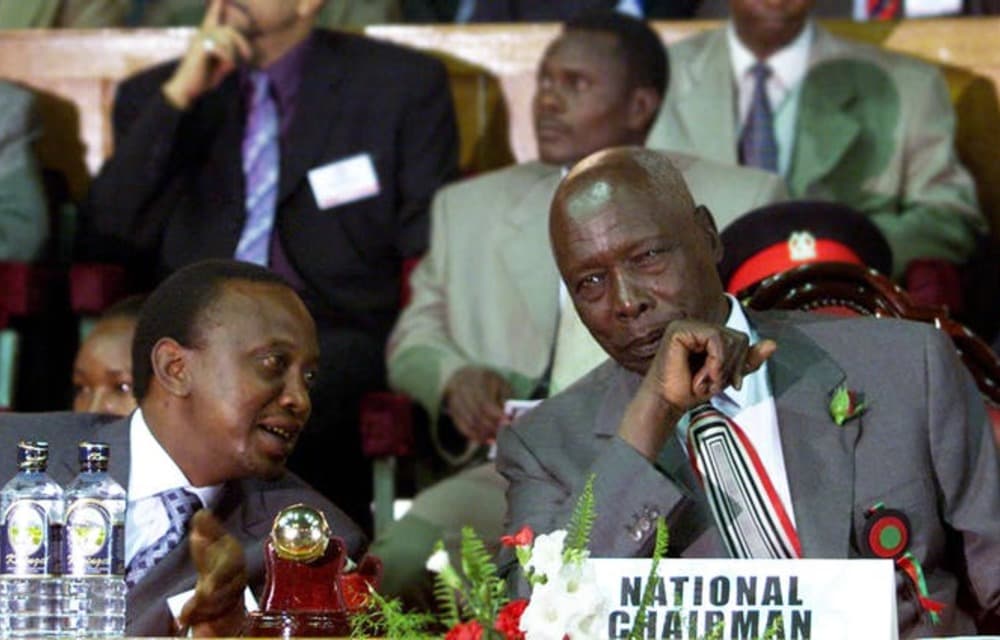We're loading the full news article for you. This includes the article content, images, author information, and related articles.
Former Presidential Press Service head Lee Njiru has revealed that the late President Daniel arap Moi rejected a proposal from a senior security officer to assassinate opposition leader Raila Odinga.

In a significant revelation, Lee Njiru, who served as the head of the Presidential Press Service (PPS) for the late President Daniel arap Moi, has disclosed that Moi once rejected a plot to assassinate opposition figure Raila Odinga. Njiru, speaking from his Ngata home in Nakuru, recounted a moment when a senior security officer proposed eliminating Odinga due to the perceived problems he was causing the administration.
According to Njiru, Moi firmly declined the suggestion, stating, "Let him continue. Kenya needs people like him." This decision, as articulated by Njiru, underscored Moi's political maturity and acknowledged Odinga's crucial role in Kenya's democratic evolution.
Daniel arap Moi served as Kenya's second president from 1978 to 2002, a period largely characterized by one-party rule under the Kenya African National Union (KANU) and significant political repression. During this era, political dissent was often met with severe measures, including detention without trial.
Raila Odinga, a prominent opposition figure, experienced this firsthand, enduring six years of detention without trial between 1982 and 1988 following accusations related to a failed coup attempt. His activism was central to the push for multi-party democracy, which eventually led to the repeal of Section 2A of the Constitution in 1991, ending KANU's de jure one-party state.
Kenya has a history of high-profile political assassinations that have often occurred during times of instability, influencing public trust in the government. Notable figures such as Pio Gama Pinto (1965), Tom Mboya (1969), and J.M. Kariuki (1975) were victims of such killings, with investigations often failing to bring perpetrators to justice.
The period under Moi's presidency saw the entrenchment of authoritarian rule, particularly after the 1982 attempted coup, which led to the reintroduction of detention laws. The Truth, Justice and Reconciliation Commission (TJRC) report, established in 2008, highlighted that political assassinations were among the tactics used by the state and political elite to repress dissent or eliminate competition. The report also noted that investigations into such cases were often deliberately shut down.
Lee Njiru, who worked for the Presidential Press Service for approximately 25 years, from 1977 to 2002, and served as its director for 24 of those years, offers a unique perspective on the inner workings of State House during Moi's tenure. His memoir, "President's Pressman," published in July 2022, provides personal insights into the presidency and the individuals closely associated with Kenya's first two presidents.
Njiru's testimony underscores the internal pressures within Moi's administration to deal with political opponents decisively. His account suggests that despite such pressures, Moi sometimes exercised restraint, a detail that offers a more nuanced view of his leadership.
Key Political Events and Figures:
The revelation highlights the inherent dangers faced by opposition figures during periods of authoritarian rule in Kenya. The existence of such a plot, even if rejected, underscores the fragility of political freedoms and the constant threat of extra-judicial actions against those who challenge the government. It also speaks to the power dynamics within the government, where security organs could propose such extreme measures.
While Njiru's account provides a specific instance of a rejected assassination plot, the full extent of such proposals or similar actions during Moi's presidency remains largely unknown. The identity of the "senior security officer" who made the proposal has not been publicly disclosed by Njiru. Furthermore, the broader context of other alleged plots or attempts against political opponents during that era continues to be a subject of historical debate and speculation.
Lee Njiru's memoir, "President's Pressman," was launched in July 2022. His ongoing interviews and public statements continue to offer historical insights into Kenya's political landscape. These revelations contribute to the ongoing discourse about Kenya's past, particularly the Moi era, and may prompt further historical inquiry or public discussion.
Future discussions and analyses of Lee Njiru's memoir and his public statements will likely continue to shape public perception of the Moi presidency and the challenges faced by opposition leaders like Raila Odinga. The extent to which these revelations influence contemporary political narratives and historical interpretations in Kenya remains to be seen. The ongoing efforts to document and understand Kenya's political history, including periods of repression, will benefit from such firsthand accounts.
Keep the conversation in one place—threads here stay linked to the story and in the forums.
Sign in to start a discussion
Start a conversation about this story and keep it linked here.
Other hot threads
E-sports and Gaming Community in Kenya
Active 9 months ago
The Role of Technology in Modern Agriculture (AgriTech)
Active 9 months ago
Popular Recreational Activities Across Counties
Active 9 months ago
Investing in Youth Sports Development Programs
Active 9 months ago
Key figures and persons of interest featured in this article